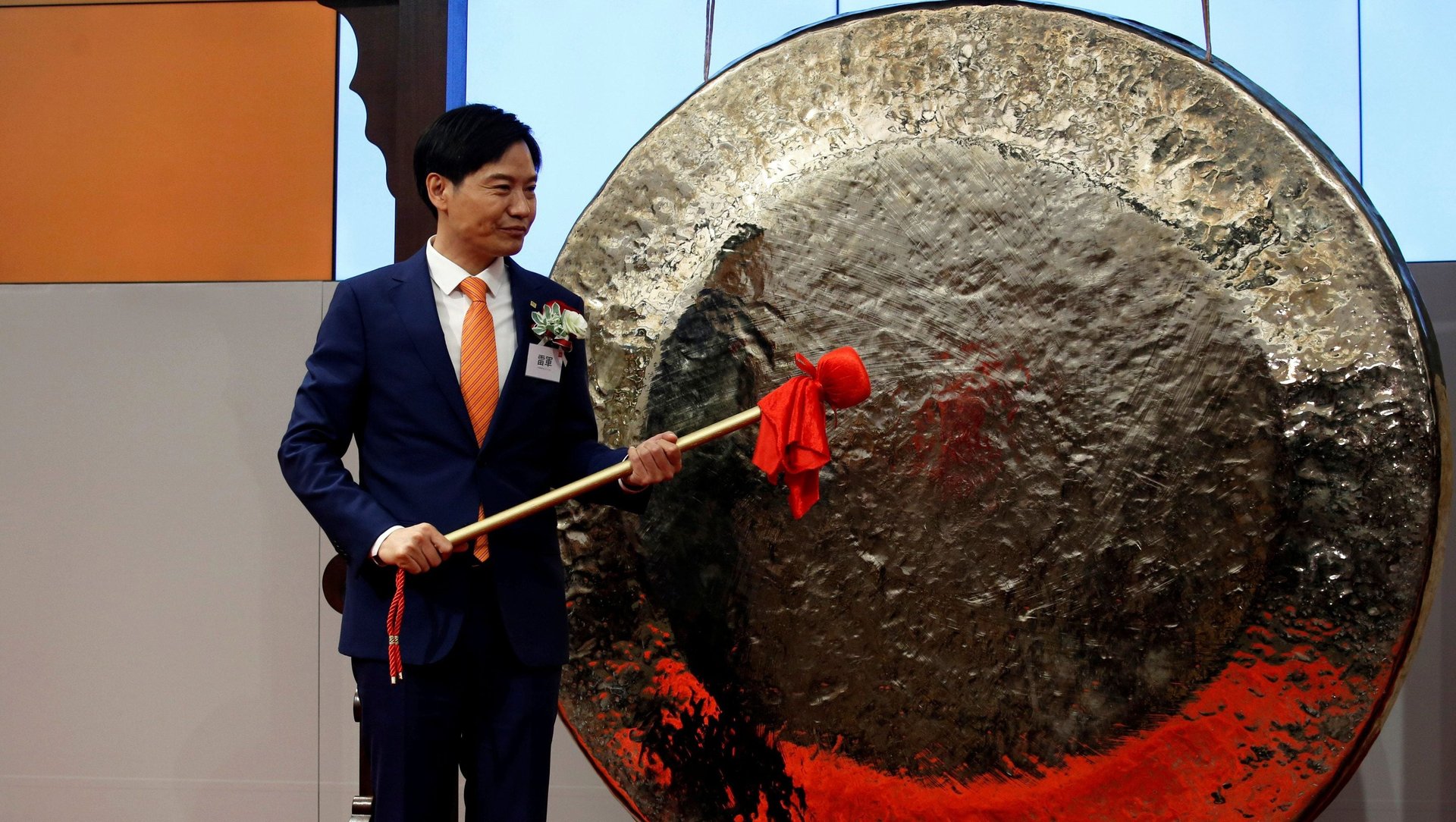A brief history of the classical Chinese couplet Xiaomi’s leader quoted before its IPO setback
Ahead of Chinese smartphone company Xiaomi’s debut on the Hong Kong stock exchange Monday (July 9), founder Lei Jun wrote an open letter over the weekend about the significance of the listing—not just for the company he founded less than a decade ago, but for China’s technology sector. On Chinese social media, he also circulated (link in Chinese) part of a couplet that the 17th-century writer Pu Songling wrote after repeatedly failing the notoriously difficult Qing Dynasty-era civil service exam: “Heaven won’t fail the dedicated heart. Sleeping on brushwood and tasting gall, 3,000 Yue soldiers at long last can defeat the Wu.”


Ahead of Chinese smartphone company Xiaomi’s debut on the Hong Kong stock exchange Monday (July 9), founder Lei Jun wrote an open letter over the weekend about the significance of the listing—not just for the company he founded less than a decade ago, but for China’s technology sector. On Chinese social media, he also circulated (link in Chinese) part of a couplet that the 17th-century writer Pu Songling wrote after repeatedly failing the notoriously difficult Qing Dynasty-era civil service exam: “Heaven won’t fail the dedicated heart. Sleeping on brushwood and tasting gall, 3,000 Yue soldiers at long last can defeat the Wu.”
Known to every Chinese schoolchild, the idiom “sleeping on brushwood, tasting gall” is used to convey the reassuring sentiment that grueling hard work will eventually—in the long run—pay off. The words, which predate the couplet, refer to the story of the 5th-century BC king Goujian of the Yue state during the combat-filled Spring and Autumn period that spanned roughly 300 years. Defeated by the Wu state ruler and forced to serve him for a time, Goujian stokes his resolve for revenge with hard living. He eventually triumphs over his nemesis—who leads a more luxurious life—and annexes his rival’s kingdom.
The Goujian story has a particular resonance in contemporary capitalist China, according to former Wellesley College history professor Paul Cohen, who wrote a book on the topic. It’s used in ways as diverse as critiquing Communist Party member behavior and persuading job seekers that working hard at low pay can be a recipe for becoming a “21st-century Goujian.” The story is one people can relate to personally, encouraging the resilience needed to deal with competition, or accept that the path to success is often paved with failure.
It’s possible that Lei turned to that quote because the Xiaomi IPO marks the triumph he and his co-founders have earned after past failures (paywall) and humble living. At a recent press conference about Xiaomi, Lei showed a photo of himself and the other co-founders standing around a rice cooker with porridge when Xiaomi was founded, and joked about how it wasn’t as cool as the photos of other startups in their early days. Yet it’s clearly a photo dear to his heart—he referenced it again in his Sunday letter—with its display of a frugality in line with the company’s ethos of giving customers “more for less.”
It’s also possible that Lei was bracing himself and others for the outcome of Xiaomi’s first day of trading: The stock opened at HK$16.60 (US$2.12), down from the offer price of HK$17, and closed at HK$16.80, giving it a market capitalization of close to $50 billion, half the heady figure that surfaced earlier this year when its listing was first announced.
To Lei, the stock’s performance might also seem like an instance of investors not being able to recognize Xiaomi’s—and his—genius. In the run-up to the listing, Lei talked of the companies’ three-pronged “new species” of business model—hardware plus software plus a growing range of Mi Home stores offering connected and unconnected products. Investors may not have been persuaded, and the US-China trade war getting under way in earnest probably didn’t help either.
In that regard, the story of the writer Pu Songling, whose couplet Lei quoted on Saturday, might offer another lesson: Sometimes you have to wait a long time for your accomplishments to be recognized. Sometimes, a really long time. Pu, a schoolteacher, lived and died in relative obscurity, despite having written numerous short stories about the supernatural. It wasn’t till 50 years after his death that he gained a following as a writer.